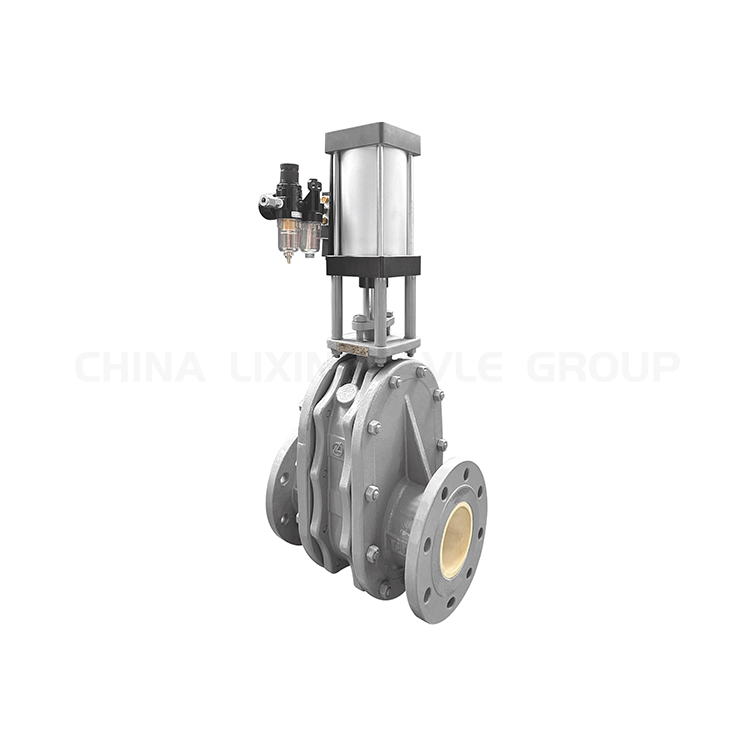What Are Ceramic Gate Valves and How Do They Work?
In the field of industrial flow control, ceramic gate valves are the first choice for demanding applications that require exceptional resistance to corrosion, erosion, and abrasion. As a leading valve manufacturer, Lixin Valve Group has established itself as a trusted provider of high-quality ceramic gate valves for various industries, including oil and gas, chemical processing, mining, and pharmaceuticals.

Benefits of Ceramic Gate Valves:
1. Corrosion Resistance: Ceramic materials excel in resisting harsh chemicals, acids, and alkalis, making ceramic gate valves ideal for corrosive environments.
2. Abrasion Resistance: Their exceptionally hard ceramic components can withstand abrasive media, minimizing wear and prolonging valve lifespan.
3. Leak-Tight Performance: Ceramic gate valves deliver superior sealing properties, preventing leakage and ensuring reliable flow control.
4. Low Maintenance: The inherent durability of ceramic materials minimizes maintenance requirements, resulting in reduced downtime and operational costs.
5. Wide Temperature Range: Ceramic gate valves can endure a broad spectrum of temperatures, making them suitable for extreme conditions.
Construction and Design:
Lixin Valve Group’s ceramic gate valves are meticulously engineered and manufactured to ensure optimal performance and longevity. The core of these valves lies in their ceramic components, typically comprising zirconium oxide (ZrO2) or alumina (Al2O3). These ceramics provide exceptional hardness, strength, and resistance to corrosive and abrasive environments.
The gate element, which regulates the flow, is crafted from a solid ceramic material and is precisely guided within the valve body. This design eliminates metal-to-metal contact, preventing wear and galling. Additionally, the valve seat, which forms the tight seal against the gate, is also composed of ceramic, ensuring leak-proof operation.
Applications:
The versatility of ceramic gate valves makes them suitable for a wide range of applications across various industries. Some common examples include:
1. Chemical Processing: Ceramic gate valves are extensively employed in chemical plants, handling highly corrosive and abrasive media.
2. Oil and Gas: These valves are vital in oil and gas production, where they effectively control the flow of crude oil, natural gas, and refined products.
3. Mining: Ceramic gate valves are used in mining operations to manage slurry and abrasive materials.
4. Pharmaceuticals: The pharmaceutical industry relies on ceramic gate valves for precise flow control of sterile and corrosive fluids.
5. Pulp and Paper: In the pulp and paper industry, ceramic gate valves are utilized for handling corrosive chemicals and abrasive slurries.
Selection Criteria:
Choosing the appropriate ceramic gate valve for a specific application requires careful consideration of several factors:
1. Media Compatibility: Ensure the valve’s ceramic materials are compatible with the fluids being handled.
2. Pressure and Temperature: Select a valve rated for the expected pressure and temperature conditions of the application.
3. Flow Capacity: Consider the required flow rate and choose a valve with an appropriate size and design to meet the flow demands.
4. Valve Type: Select the appropriate valve type, such as rising stem or non-rising stem, based on the desired operation and installation space.
5. Quality and Standards: Choose a reputable valve manufacturer like Lixin Valve Group that adheres to industry standards and provides high-quality products.

Lixin Valve Group’s ceramic gate valves represent a pinnacle of performance, reliability, and longevity in demanding industrial applications. Their exceptional resistance to corrosion, erosion, and abrasion makes them a preferred choice for handling challenging fluids. With careful selection and proper maintenance, these valves can deliver years of trouble-free operation, minimizing downtime and maximizing productivity.






